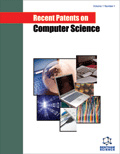Abstract
In the recent years, the global burden of diabetes has become apparent - more than 366 million people worldwide are affected by this disease. At the same time, it is well-known that the treatment of diabetes is one of the most difficult therapies to manage. Thus, the key problem of diabetes therapy management is to predict the future blood glucose level of a diabetic patient from available current and past information about therapeutically valuable factors. The developed approaches and algorithms to accurate prediction respond to the strong need for better management of the disease.
In this paper we retrace the development of the blood glucose predictors and make a review of the ones recently published in the patent literature as well as in journals on diabetes and data-mining. We mention strengths and weaknesses of the existing models and present a novel approach for addressing the problem that may seem superior to the state of the art methods. In particular, we show that the predictors based on the novel approach are able to perform up to 20 minutes ahead in the future at the level of clinical accuracy achieved by the commercially available devices for reading just the current blood glucose value.
Keywords: Adaptive parameter choice, autoregressive model, blood glucose prediction, kernel choice, meta-learning, neural networks, regularization networks, time-series models, Linear Extrapolation, Artificial Neural Networks
 9
9













